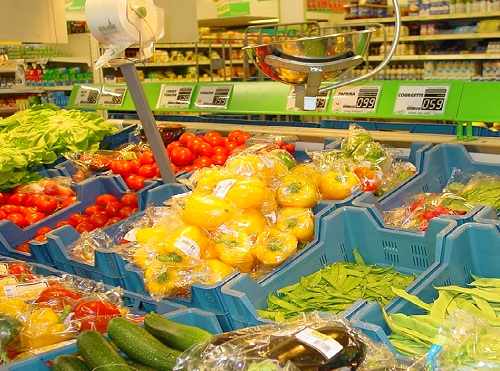Over Half Of Us Will Buy Food Online By 2021

A study by Capgemini has found that more than half of UK consumers will order their groceries from online retailers by 2021.
40% Now
The study found that a massive 40% of customers already do their grocery shopping online, and that 43% of customers shop for food online at least once a week.
Big Issues Around Delivery
The study also revealed some big issues that customers had around the subject of delivery.
For example, even though 59% of customers said that they are not satisfied with current high delivery prices, only 1% of retailers are willing to cover full delivery costs for shopping.
Also, nearly half of the consumers surveyed said they would stop spending with a retailer if they had a bad delivery experience, but on the upside, 53% of customers who said that if they had a good delivery experience with a brand, they would be willing to pay for a membership if it meant that they could keep having good delivery experiences in the future.
The study also showed that 65% of customers are finding greater satisfaction in using delivery services other than traditional supermarket retailers e.g. Ocado and Google Express. In fact, 64% of those surveyed said they didn’t care whether their products were delivered by a brand or by a third party, and some of those surveyed said they’d even deliver products to their nearby neighbours in return for an incentive from the retailer.
The ‘Last-Mile’ Cost
One of the big problems that retailers face in delivery groceries is that the so-called ‘last-mile’. This is the movement of goods from a transportation hub to the final delivery destination (i.e. your home), and this part of the supply chain accounts for 41% of the overall delivery cost for retailers. This may explain the reluctance of retailers to cover full delivery costs for shopping, as shown by the survey.
Disconnect
The study also highlights a disconnect between the expectations of customers and retailers. For example, although customers appear to place a high value on low delivery costs, only 30% of retailers think this is important. Also, whereas a massive 73% of customers want to choose a convenient delivery time slot for goods, only 19% of retailers regard this as a priority.
What Does This Mean For Your Business?
There is no doubt that many of us are now used to (and prefer) online shopping for many things, including groceries, and if, as the study shows, even more of us are going to be doing our grocery shopping online going forward, grocery retailers are faced with several challenges in order to meet rising customer expectations and retain loyalty. For example, retailers will need to be able to provide last-mile delivery services that customers value, without damaging their own profitability. Also, retailers need to take more notice generally of issues around delivery that customers really value e.g. offering convenient delivery time slots/methods for goods, and minimising delivery costs to customers.
One thing the study has indicated is that customers may even be willing to try new delivery ideas, and even pay more if they can be assured of consistently better delivery experiences. With this in mind, and with customers rising, grocery retailers are likely to invest more in automating warehouse and product sorting to reduce costs and embrace new things such as machine learning and automation technology to make the supply chain more efficient.

